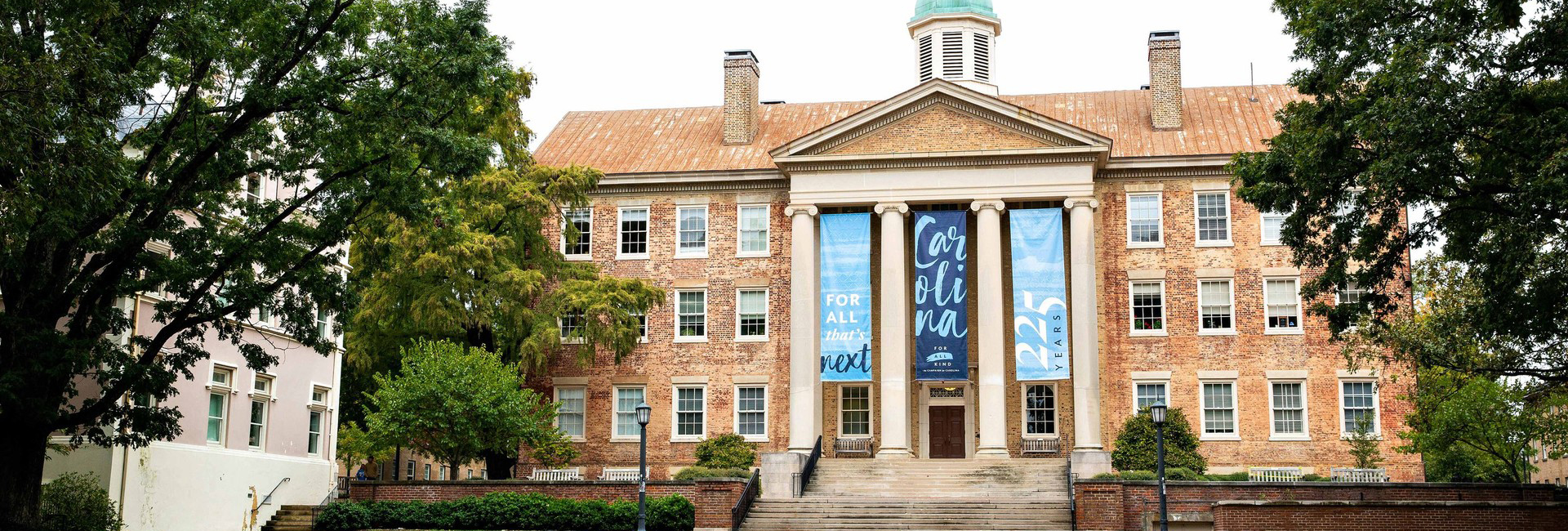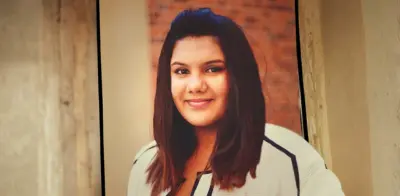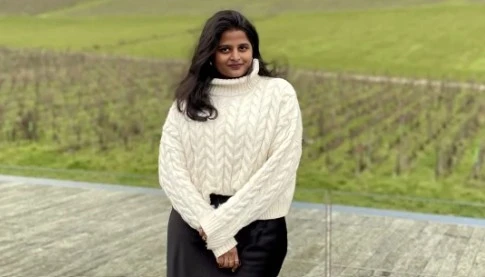Name: Rhea Bakshi
University: North Carolina
Course: Double Major in Economics and Business
Location: USA
Key Highlights:
– Studying in the US gives more flexibility as it allows to stay and work for another three years after graduating
– US provides a more holistic approach in terms of education. One can take up multiple subjects
– One can work for up to 20 hours in a week on student visa
(December 12, 2024) Being one of those high school kids who couldn’t wait to move to college, Rhea Bakshi saw herself smoothly gliding into her dream life abroad. However, moving to the US for her double major in economics and business came with challenges. “The transition isn’t easy,” she tells Global Indian, adding, “At the University of North Carolina, there is a small international student population. It’s been difficult and way harder than I had expected.” However, she is getting into the flow with each passing day and is more than grateful to have made it to her dream college in the US.
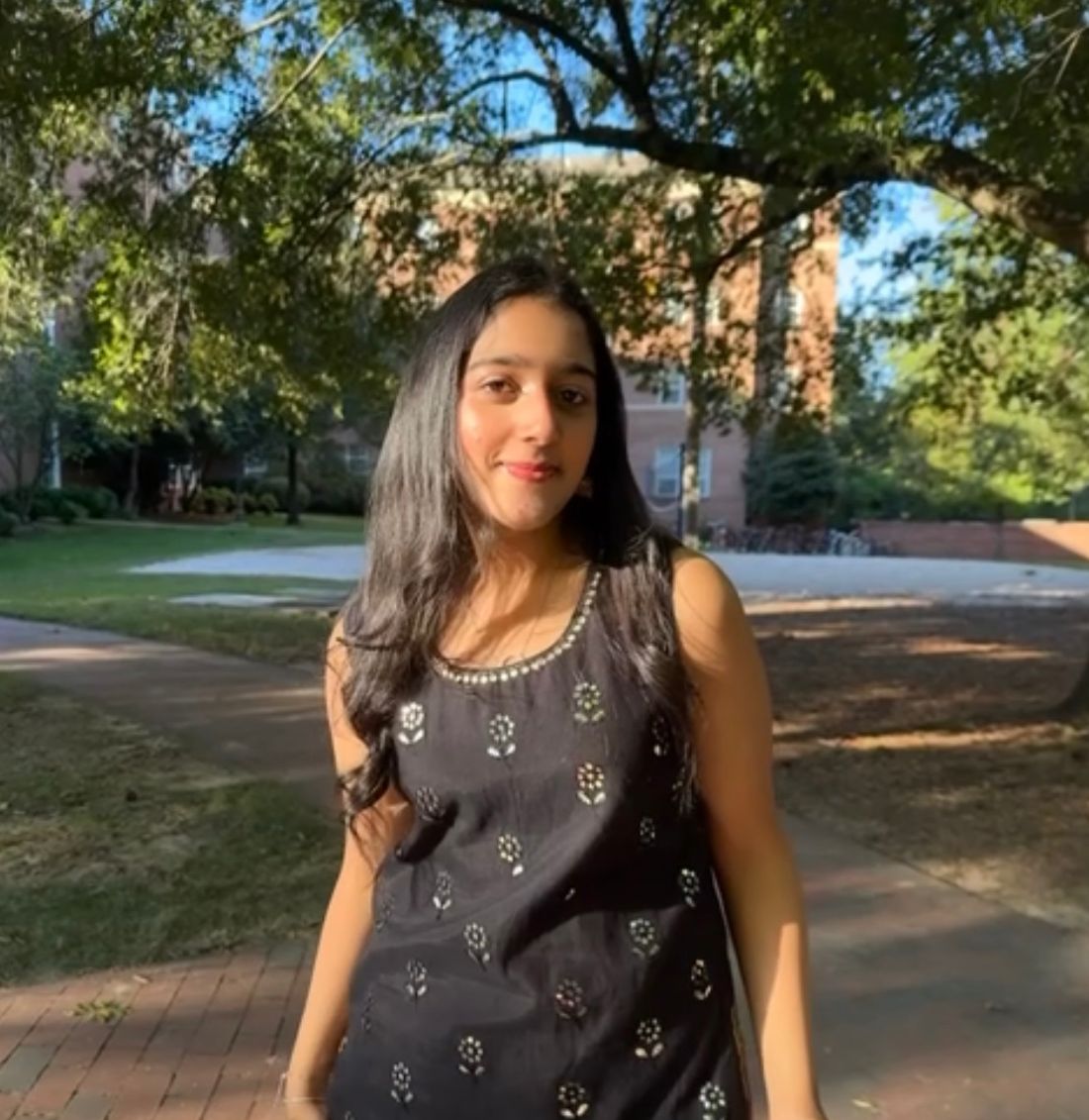
Rhea Bakshi
Rhea found a great support system in her parents who too wanted to study abroad. However, due to the lack of resources, they couldn’t fulfill their dream. However, they were keen to be the wind beneath their daughter’s wings and let her fly high. “They allowed me to study abroad but also asked me to look for universities in India.” She began exploring universities in India but realised none gave the kind of holistic development and growth she was looking for. “Moreover, I was working on inclusive economic development, I found the idea interesting to go abroad and get a global perspective on how world economies work and return to India and contribute.”
Interested in exploring universities in the UK and the US, she applied to both but soon realised that the US allowed her to stay and work for another three years after graduating, making it her first choice. “It’s much more flexible in the US than the UK. I wanted to get global exposure in terms of work as well.”
Preparing for the Big Move
The documentation process began early for Rhea who emphasises the importance of academic scores from Class 9 to Class 12. “You at least need 95 percent throughout the years to apply. Also, you need two letters of recommendation from subject teachers and one letter of recommendation from the school counsellor along with an activity list comprising of 10 activities you participated in during high school,” reveals Rhea, who added her documentary India’s Treasures along with her work with NGO Nai Disha. “You can also add an external letter of recommendation from your internships. They too matter.”
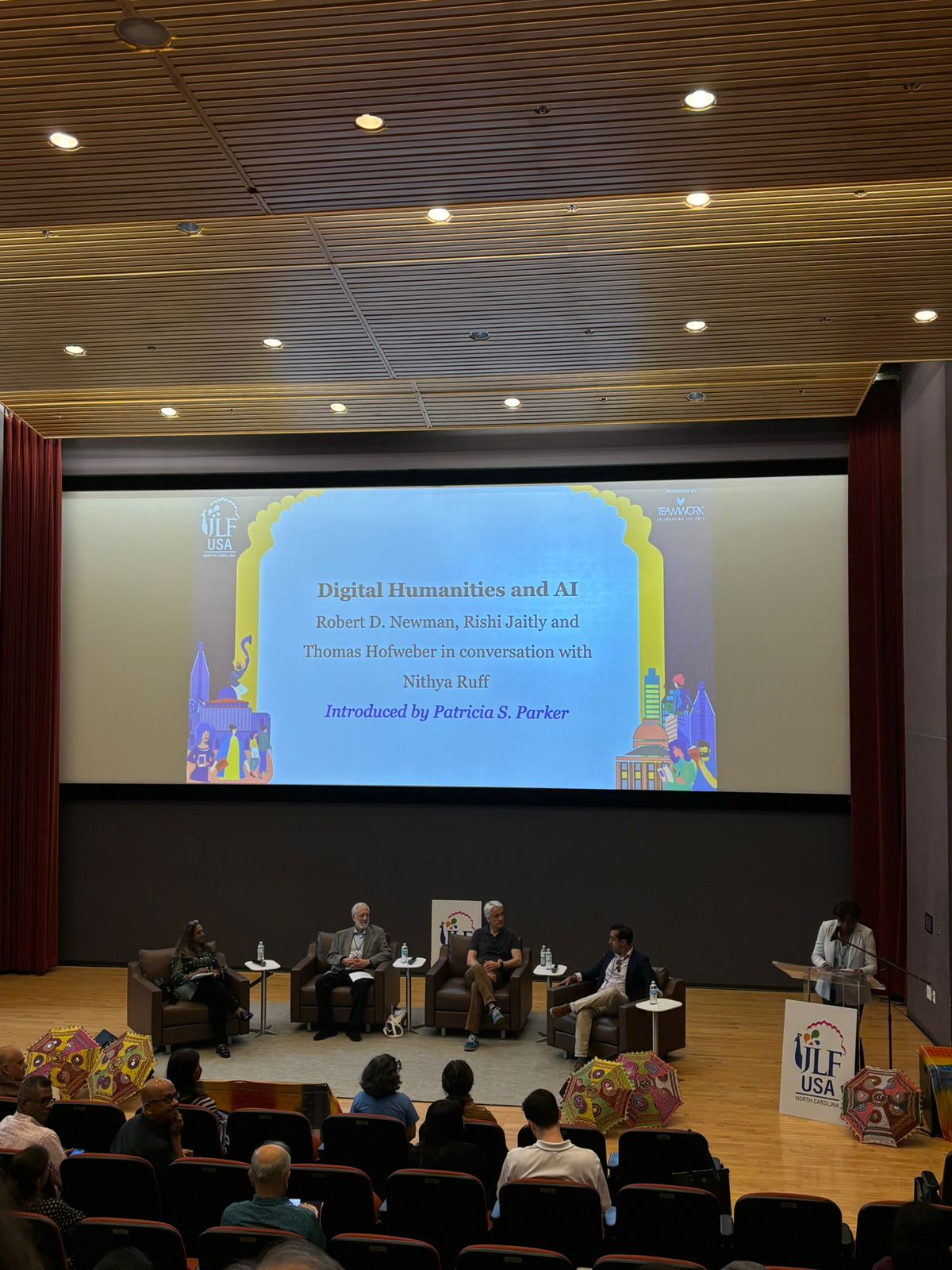
In addition, there is a 650-word essay known as the Common App Essay, which is submitted to all the colleges you apply to through the Common Application. “Moreover, each college provides its prompts, requiring you to write separate essays for each.” Rhea underlines the importance of starting the documentation process early for November applications, as preparing the necessary documents and writing the SOPs takes time. Through the Common App, applicants can apply to up to 20 US universities at once. “It’s crucial to maintain a balanced list of safety colleges, reach colleges, and dream colleges when applying.”
Landing Into Her Dream College
She was accepted to the University of North Carolina and packed her bags to live her dream life. “It was surreal to first enter the gates of the university. Even after two months, it still feels like a dream,” says the teenager, who often finds herself marvelling at the campus. “I’m awestruck. It’s crazy that this is the first public university in the US, and I’m here.”
In her short time at the university, she has grown to love its location, which strikes a perfect balance between urban and rural settings. “It’s suburban, offering the best of both worlds. The business school has excellent resources, highly talented faculty, and provides incredible opportunities through various events,” she shares.
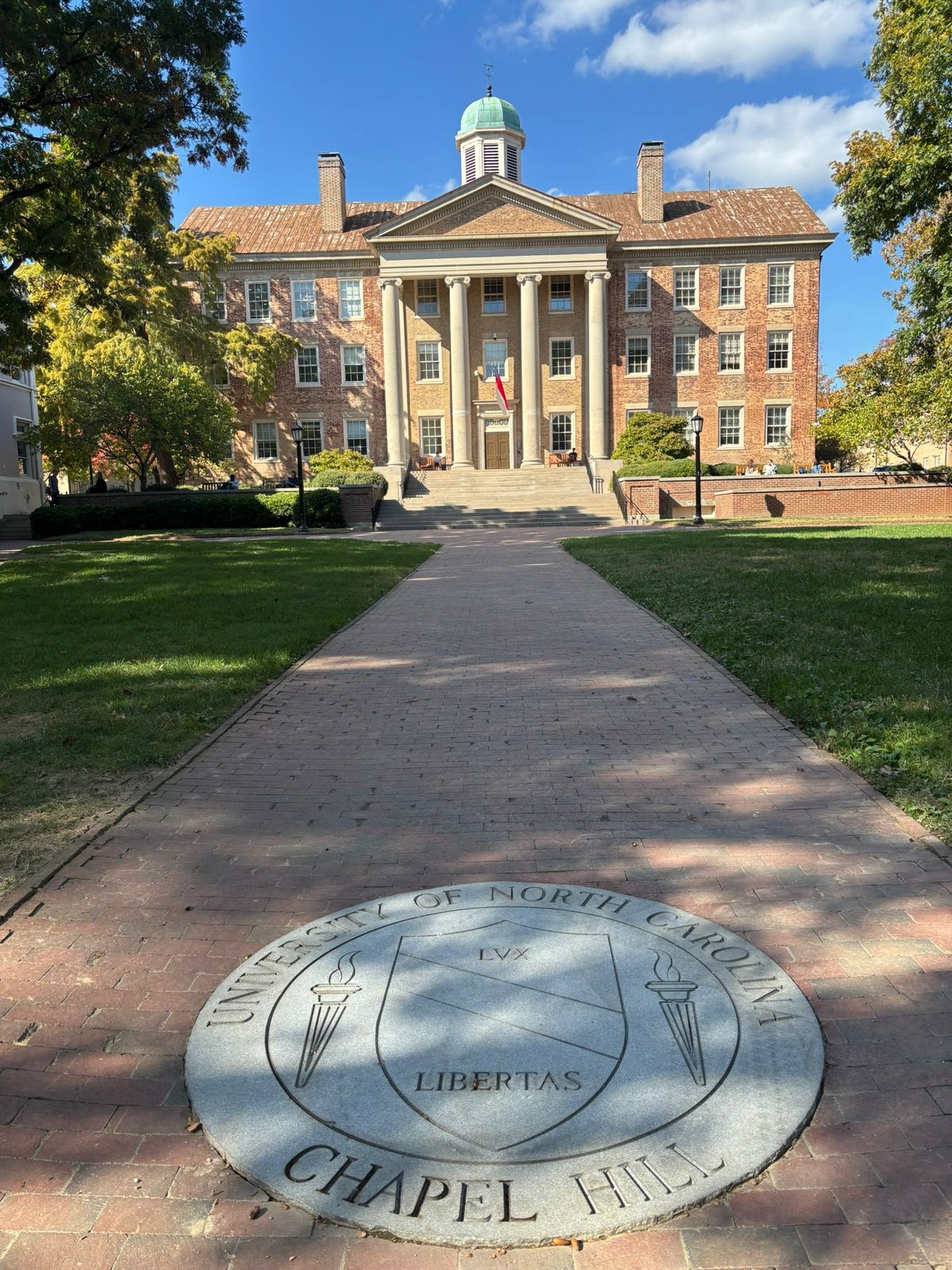
Navigating Challenges Abroad
However, the transition hasn’t been easy for Rhea who found herself in a new country without much support system. “It’s a completely different experience”, she explains. “Because suddenly from being a majority in India, you become a minority in the US, especially at UNC which has a quota for in-state students,” reveals Rhea, adding, “Most of the students are from North Carolina and it becomes a little difficult to break into these groups of students who have known each other since high school. Also, there are not many Indian students in the university.”
However, she believes it’s important to experience diversity because meeting people from diverse backgrounds makes you value your principles. “Being an Indian in the US makes you realise what Indian values are and how other people are not brought up the way you are.”
Adjusting To Life in the US
While building a support system was one of her biggest challenges, adjusting to North Carolina’s unpredictable weather proved equally tough. “I arrived during hurricane season, and on my second day at college, our phones buzzed with hurricane alerts. Then came flash floods. That’s how my first week of college started,” she recalls with a laugh. Moreover, she couldn’t stop herself from converting dollars to rupees at every transaction. “It’s such a culture shock to see things so expensive in comparison to India. $10 means nothing to people in the US but for me, it’s ₹800.”
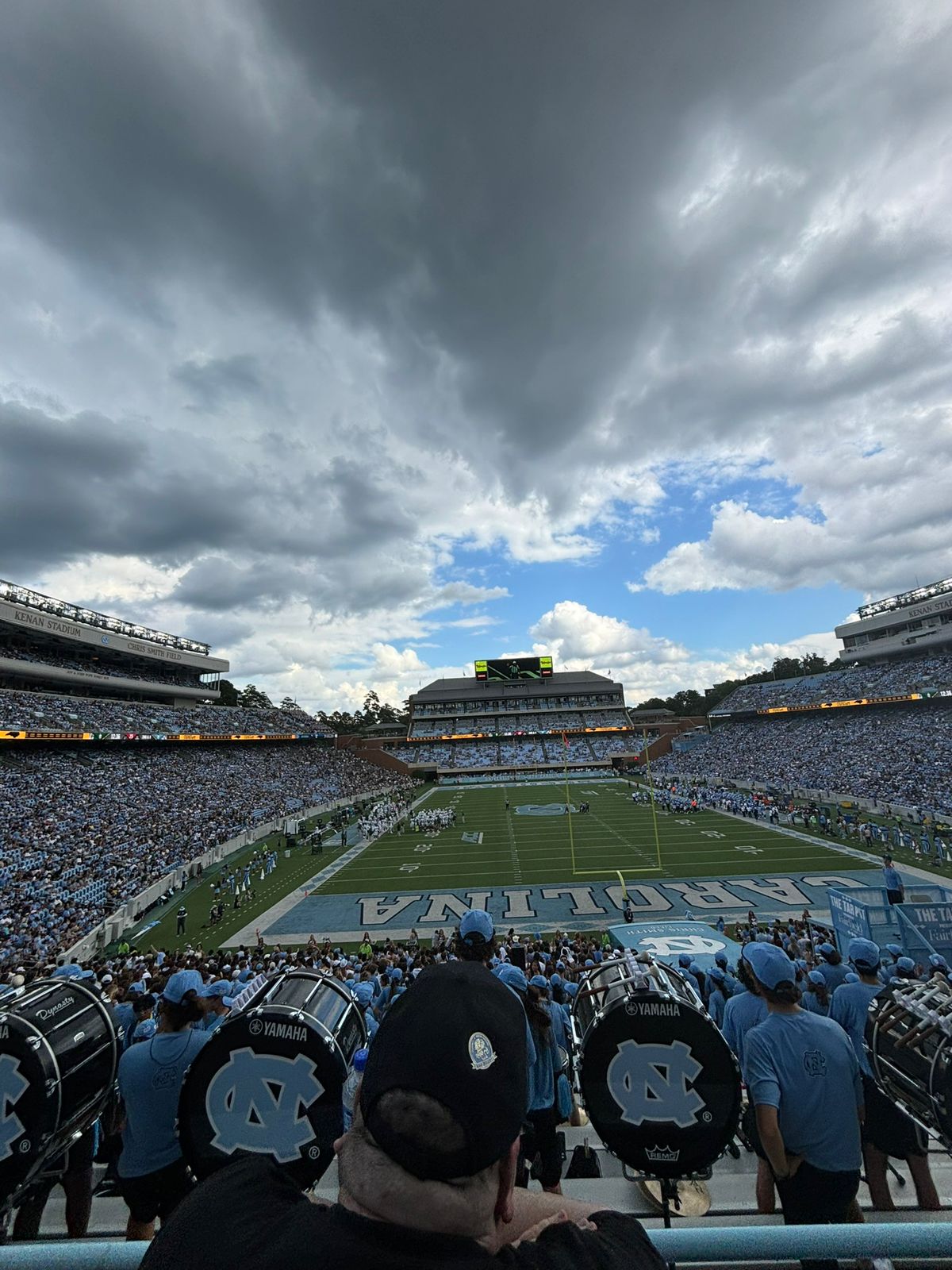
Just two months into her time at the University of North Carolina, Rhea has already noticed the stark differences between the study cultures in the US and India. “The approach here is holistic, allowing students to explore multiple interests simultaneously. I’m studying economics, but I’m also taking classes in music and urban planning,” she explains. “The way each course is taught is different too. Professors refer to presentations and you are graded on papers. You are taught the basics and then you need to find your own perspective on it.”
She has already started applying for jobs to manage some of her expenses and reduce her financial dependence on her parents. “It gives me sense of saving and investing,” she says, adding, “I’m allowed to work for 20 hours in a week on university campus on my visa. We get the minimum wage – $10 per hour.”
With only a handful of Indians in her college, she has realised that many young Americans have a very myopic view of India. She observes that while Indians in the US are well-acquainted with the American culture, the same cannot be said for Americans’ understanding of India. “They have a poor view of India and often ask questions like if we have curtains at our homes in India or how could I speak English so well,” she explains. “India a developed country and the fifth-largest economy in the world. But I think that’s where Orientalism comes in, where Western people believe only what they write about the Eastern world. It’s how American pop culture and cinema portray us.”
Despite the challenges, Rhea considers studying at her dream college a true blessing. “I’m grateful for it every day. It’s very easy for us to forget the opportunities given to us and how so many people would be willing to give anything to experience what we are experiencing. It keeps me humble on days when things are not working in my favour. I’m enjoying my time at the university despite the highs and lows.”
- Follow Rhea Bakshi on LinkedIn
